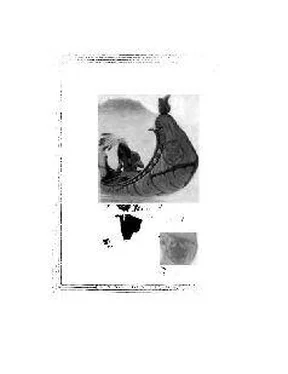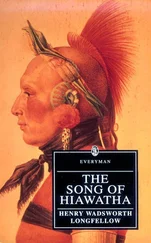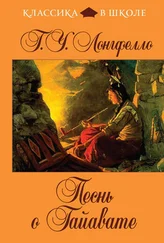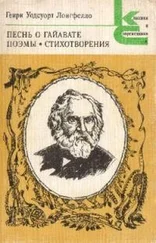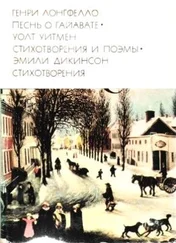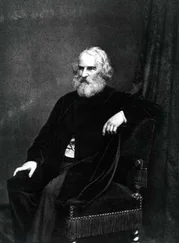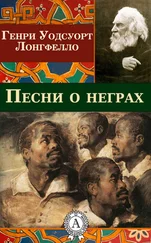Генри Лонгфелло - The Song of Hiawatha
Здесь есть возможность читать онлайн «Генри Лонгфелло - The Song of Hiawatha» весь текст электронной книги совершенно бесплатно (целиком полную версию без сокращений). В некоторых случаях можно слушать аудио, скачать через торрент в формате fb2 и присутствует краткое содержание. Жанр: Поэзия, на английском языке. Описание произведения, (предисловие) а так же отзывы посетителей доступны на портале библиотеки ЛибКат.
- Название:The Song of Hiawatha
- Автор:
- Жанр:
- Год:неизвестен
- ISBN:нет данных
- Рейтинг книги:3 / 5. Голосов: 1
-
Избранное:Добавить в избранное
- Отзывы:
-
Ваша оценка:
- 60
- 1
- 2
- 3
- 4
- 5
The Song of Hiawatha: краткое содержание, описание и аннотация
Предлагаем к чтению аннотацию, описание, краткое содержание или предисловие (зависит от того, что написал сам автор книги «The Song of Hiawatha»). Если вы не нашли необходимую информацию о книге — напишите в комментариях, мы постараемся отыскать её.
The Song of Hiawatha — читать онлайн бесплатно полную книгу (весь текст) целиком
Ниже представлен текст книги, разбитый по страницам. Система сохранения места последней прочитанной страницы, позволяет с удобством читать онлайн бесплатно книгу «The Song of Hiawatha», без необходимости каждый раз заново искать на чём Вы остановились. Поставьте закладку, и сможете в любой момент перейти на страницу, на которой закончили чтение.
Интервал:
Закладка:
Ome'mee, the pigeon.
Ona'gon, a bowl.
Onaway', awake.
Ope'chee, the robin.
Osse'o, Son of the Evening Star,
Owais'sa, the bluebird.
Oweenee', wife of Osseo.
Ozawa'beek, a round piece of brass or copper in the Game of the
Bowl. Pah-puk-kee'na, the grasshopper. Pau'gnk, death.
Pau-Puk-Kee'wis, the handsome Yenadizze, the Storm-Fool Pauwating, Sault Sainte Marie. Pe1)oaii, Winter.
Pem'ic amp;n, meat of the deer or buffalo dried and pounded, Pezheekee', the bison. Pishnekuh', the brant. Pone'mah, hereafter. Pugasaing', Game of the Bowl Puggawau'gun, a war-dub.
Puk-Wudj'ies, little wild men of the woods; pygmies. Sah-sah-je'wun, rapids. Sah'wa, the perch. Segwnn', Spring. Sha'da, the pelican. Shahbo'min, the gooseberry. Shah-shah, long ago. Shaugoda'ya, a coward. Shawgashee', the craw-fish. Shawonda'see, the South-Wind. Shaw-shaw, the swallow.
Shesh'ebwug, ducks; pieces in the Game of the Bowl Shio'gebis, the diver or grebe. Showain' neme'shin, pity me.
Shnh-shnh'gah, the blue heron.
Soan-ge-ta'ha, strong hearted.
Subbeka'she, the spider.
Sagge'ma, the mosquito.
Totem, family coat of arms.
Ugh, yes.
Ugndwash', the sun-fish.
Unktahee', the God of Water.
Wabas'ao, the rabbit; the North.
Wabe'no, a magician, a juggler.
Wabe'no-wnsk, yarrow.
Wa-bnn, the East-Wind.
\.Va'bun An'nung, the Star of the East, the Morning Star.
Wahono'win, a cry of lamentation.
Wah-wah-tay'see, the fire-fly.
Wam'pum, beads of shell.
Waubewy'on, a white skin wrapper.
Wa'wa, the wild goose.
Waw'beek, a rock.
Waw-be-Wwa, the white goo*.
Wawonais'sa, the whippoorwUl.
Way-muk-kWna, the caterpillar.
Wen'digoes, giants.
Weno'nah, Hiawatha's mother, daughter of Nokomis
Yenadiz'ze, an idler and gambler; an Indian dandy.
[" Suddenly and immensely popular in this country, greatly admired by many foreign critics, imitated with perfect ease by any clever school-boy, serving as a model for metrical advertisements, made fun of, sneered at, abused, admired, but, at any rate, a picture full of pleasing fancies and melodious cadences. The very names are jewels which the most fastidious muse might be proud to wear. Coming from the realm of the Androscoggin and of Moosetukmaguntuk, how could he have found two such delicious names as Hiawatha and Minnehaha ? The eight-syllable trochaic verse of Hiawatha, like the eight-syllable iambic verse of The Lady of the Lake, and others of Scott's poems, has a fatal facility, which I have elsewhere endeavored to explain on physiological principles. The recital of each line uses up the air of one natural expiration, so that we read, as we naturally do, eighteen or twenty lines in a minute, without disturbing the normal rhythm of breathing, which is also eighteen or twenty breaths to the minute. The standing objection to this is, that it makes the octosyllabic verse too easy writing and too slipshod reading. Yet in this most frequently criticised composition the poet has shown a subtle sense of the requirements of his simple story of a primitive race, in choosing the most fluid of measures, that lets the thought run through it in easy sing-song, such as oral tradition would be sure to find on the lips of the story-tellers of the wigwam." – Oliver Wendell Holmes : Remarks at meeting of Massachusetts Historical Society, April 13, 1882.]
Page 3. In the Vale of Tawasentha.
This valley, now called Norman's Kill, is in Albany County, New York.
Page 6. On the Mountains of the Prairie.
Mr. Catlin, in his Letters and Notes on the Manners, Customs, and Condition of the North American In-dians, vol. ii. p. 160, gives an interesting account of the Coteau des Prairies, and the Red Pipestone Quarry. He says: -
" Here (according to their traditions) happened the mysterious birth of the red pipe, which has blown its fumes of peace and war to the remotest corners of the continent; which has visited every warrior, and passed through its reddened stem the irrevocable oath of war and desolation. And here, also, the peace-breathing calumet was born, and fringed with the eagle's quills, which has shed its thrilling fumes over the land, and soothed the fury of the relentless savage.
" The Great Spirit at an ancient period here called the Indian nations together, and, standing on the precipice of the red pipe-stone rock, broke from its wall a piece, and made a huge pipe by turning it in his hand.
irhich he smoked over them, and to the North, the South, the East, and the West, and told them that this stone was red, – that it was their flesh, – that they most use it for their pipes of peace, – that it belonged to them all, and that the war-club and scalping-knife most not be raised on its ground. At the last whiff of his pipe his head went into a great cloud, and the whole surface of the rock for several miles was melted and glazed; two great ovens were opened beneath, and two women (guardian spirits of the place) entered them in a blaze of fire; and they are heard there yet (Tso-mec-cos-tee and T8o-me-cos-te-won-dee), answering to the invocations of the high-priests or medicine-men, who consult them when they are visitors to this sacred place."
Page 15. Hark you y Bear ! you are a coward.
This anecdote is from Heckewelder. In his account of the Indian Nations, he describes an Indian hunter as addressing a bear in nearly these words. " I was present," he says, " at the delivery of this curious invective; when the hunter had despatched the bear, I asked him how he thought that poor animal could understand what he said to it * Oh,' said he in answer, * the bear understood me very well; did you not observe how ashamed he looked while I was upbraiding him ? ' " – Transactions of the American Philosophical Society, vol. i. p. 240.
Page 28. Hush ! the Naked Bear will hear thee !
Heckewelder, in a letter published in the Transactions of the American Philosophical Society, vol. iv. p. 260, speaks of this tradition as prevalent among the Mohicans and De la wares.
44 Their reports/* he says, " run thus : that among all animals that had been formerly in this country, this was the most ferocious; that it was much larger than the largest of the common bears, and remarkably long-bodied ; all over (except a spot of hair on its back of a white color) naked. . . .
44 The history of this animal used to be a subject of
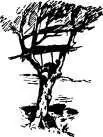
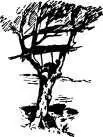
conversation among the Indians, especially when in the woods a hunting. I have also heard them say to their children when crying: * Hash ! the naked hear will hear you, he upon you, and devour yon.* "
Page 45. Where the Falls ofMinnehaha, etc.
" The scenery about Fort Snelling is rich in beaaty. The Falls of St Anthony are familiar to travelers, and to readers of Indian sketches. Between the fort and these falls are the * Little Falls,' forty feet in height, on a stream that empties into the Mississippi. The In* dians called them Minehah-hah, or ' laughing waters.'" – Mrs. Eastman's Daeotah, or Legends of the Sioux, Introd. p. ii.
Page 111. Sand Hills of the Nagow Wudjoo.
A description of the Grand Sable, or great sand-dunes of Lake Superior, is given in Foster and Whitney's Report on the Geology of the Lake Superior Land District, Part II. p. 131.
" The Grand Sable possesses a scenic interest little inferior to that of the Pictured Bocks. The explorer passes abruptly from a coast of consolidated sand to one of loose materials; and although in the one case the cliffs are less precipitous, yet in the other they attain a higher altitude. He sees before him a long reach of coast, resembling a vast sand-bank, more than three hundred and fifty feet in height, without a trace of vegetation. Ascending to the top, rounded hillocks of blown sand are observed, with occasional clumps of trees, standing out like oases in the desert"
Читать дальшеИнтервал:
Закладка:
Похожие книги на «The Song of Hiawatha»
Представляем Вашему вниманию похожие книги на «The Song of Hiawatha» списком для выбора. Мы отобрали схожую по названию и смыслу литературу в надежде предоставить читателям больше вариантов отыскать новые, интересные, ещё непрочитанные произведения.
Обсуждение, отзывы о книге «The Song of Hiawatha» и просто собственные мнения читателей. Оставьте ваши комментарии, напишите, что Вы думаете о произведении, его смысле или главных героях. Укажите что конкретно понравилось, а что нет, и почему Вы так считаете.
